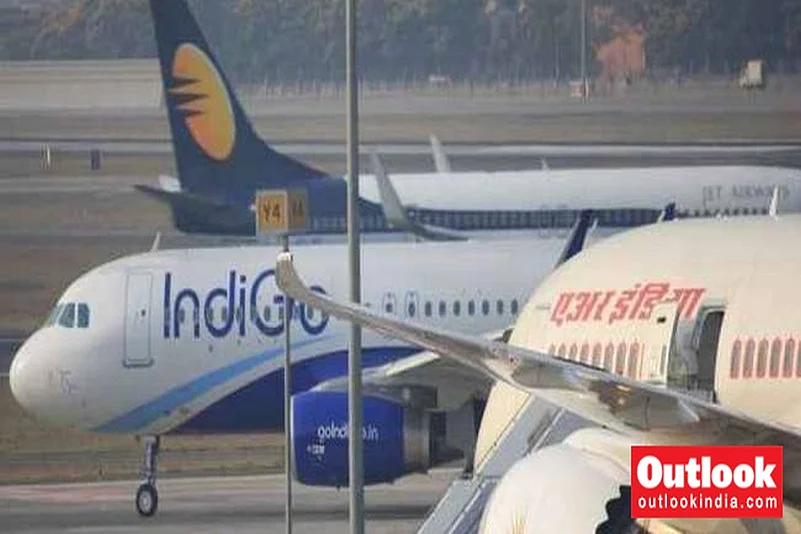The government will certainly re-evaluate the fare cap in place for domestic airlines once there is a healthier environment in terms of jet fuel prices, according to Civil Aviation Minister Jyotiraditya Scindia.
After the coronavirus pandemic rattled the country's civil aviation space, the sector is now in recovery mode, especially in terms of the number of air travellers and Akasa Air has also started services, becoming the first domestic carrier to launch operations in the last eight years.
Against the backdrop of lingering pandemic blues, the ministry has put in the fare cap system for the local airlines. Currently, the fare capping is applicable on a rolling basis for a 15-day cycle.
In an interview to PTI, Scindia said that as it stands today, the fares of airlines are not close enough to the low portion of the fare cap and are very far away from the high portion of the fare cap.
"I have seen stabilisation happen and at an appropriate time, we will certainly look at that. I am looking at ATF prices also coming off and as that becomes a more healthier environment, we will certainly re-evaluate that," the minister said.
In May, Scindia had said that the fare cap acts as a protector for air travellers as well as airlines.
The Aviation Turbine Fuel (ATF) or jet fuel prices have been on an upward trajectory in recent months, especially in the wake of the ongoing Russia-Ukraine conflict. Recently, the prices in the country were cut but remain much higher than the level seen during the pre-pandemic time.
While acknowledging that airlines are facing many structural issues, Scindia said the ATF price has gone up because of the Russia-Ukraine war from Rs 53,000 per kilo litre in 2019-20 to almost Rs 1,41,000 per kilo litre till last week.
The price has been reduced by almost 16 per cent or around Rs 21,000 per kilo litre but it is still double than it used to be, he noted.
"If you are an airline, 39 per cent of your cost structure used to be ATF at Rs 53,000 per kilo litre. Now, the ATF price has gone to Rs 1,20,000 per kilo litre. Therefore, from a structural point of view, that is the challenge they are facing," the minister said.
Meanwhile, Scindia has been urging various states and Union Territories (UTs) to reduce the Value Added Tax (VAT) levied by them on jet fuel.
The VAT on jet fuel in certain states and UTs were in the range of 20-30 per cent and many of them have reduced the rates in the past many months.
According to Scindia, when he took over as the civil aviation minister in July last year, the VAT on ATF was between 20-30 per cent in 26 States and UTs.
"Today, through persuasion, folding hands, imploring them, pleading with them, making them understand the rationale of greater gains for them, greater flight connectivity, greater economic multipliers and I am very glad to report to you that out of 26, 16 States (and UTs) have moved from 20-30 per cent VAT to 1-4 per cent bracket," he said.
Further, Scindia said that he is working with remaining states and UTs so that they also reduce the VAT on ATF to ensure that the civil aviation sector grows and everyone is a winner, "the state governments as well as the sector".
Regarding air traffic, the minister said the number of passengers is only going to increase.
"In the high season, we surpassed the pre-COVID high of 4.07 lakh (air travellers)... High season is (generally) from April to July and low season from mid-July to September, then the festival season takes off from October to January, then from January 15, we have a petering off until mid-March.
"Today, we are in the range of 3 to 3.4 lakh, which for a low season is a decent figure. In terms of the number of passengers, that is only going to increase going forward," he said.
On August 8, there were 3,15,289 passengers on 2,509 flights. "Domestic aviation operations soaring with all Covid protocols in place," the civil aviation ministry said in a tweet on Tuesday.


























.jpg?w=200&auto=format%2Ccompress&fit=max)




